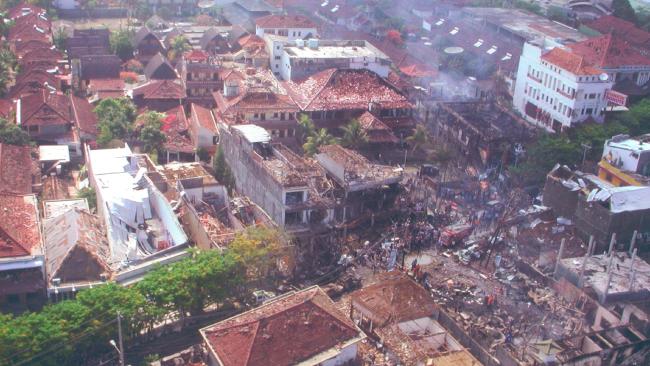
My career in international democracy assistance began at a very unique time. I started working for the International Republican Institute (IRI) in the late 1990s, when Indonesia was reeling from the Asian financial crisis, student-led protests and the conflict in Timor-Leste.
In 1999, Indonesia held the first free and fair parliamentary elections since 1955, which led to the appointment of a new president who was subsequently impeached by parliament two years later. These were turbulent times for Indonesia’s nascent democracy.
During my third year at IRI, everything changed. On September 11, 2001, two planes flew into the World Trade Center. This terrorist attack had significant implications for Indonesia, as we are the world’s most populous Muslim nation. At the time, the Indonesian people were uneasy about how the world would respond to this new threat and feared we may experience similar acts of terror at home. We were on edge and afraid.
Just 13 months later, our fears came to life when terrorists struck on the island of Bali. I was shocked. I knew domestic terrorism was a threat, there were a series of coordinated bombings on Christmas Eve of 2000 that left 18 dead, but I didn’t think an attack of this magnitude, that ended the lives of 202 people, would ever actually take place. The Bali bombings garnered headlines across the world and raised the specter of future domestic terrorist attacks across the country
The terrorist attack also affected the Institute’s work. IRI had just launched a USAID-funded political party capacity building program, and international travel was now restricted between Indonesia and the United States. At a time when Indonesia was still on edge, this presented significant challenges to us. We didn’t know what the future held for not only our work, but the country at-large.
Through all the turmoil, IRI saw an opportunity to help the people of Bali and shifted our work to the province. Using our Task Force model, which brings together a diverse range of stakeholders to identify and pursue local-level public policy solutions, we convened a coalition of Balinese political, legislative, religious, community and business leaders to mitigate the ethnic and religious tension boiling beneath the surface of the island community.
I traveled throughout the province, speaking with key actors from all walks of life. I spoke with coffee and chicken farmers, bureaucrats, elected officials, restaurant employees, teachers, parents. This helped us gain a nuanced understanding of the bombings’ impact on individual communities and their attitudes towards reconciliation – which often differed by community. I communicated this knowledge to the task coalition, which found this information invaluable.
At the time, many were worried about the possibility of ethnic and religious conflict. Unlike many Indonesian provinces, Bali is not a Muslim-majority province, instead occupied by mostly Hindus. When we were conducting interviews around the island, we asked people “who” was to blame for the bombings. Worryingly, the most common response was “Muslims”. Not terrorists, Muslim terrorists, or Islamic extremists, but just “Muslims.” This contributed to a volatile environment that seemed to be on the edge of sectarian conflict.
There were also worries about the impact the bombings had on the local economy. With the resulting decline in tourism, many families had to make due with reduced salaries, straining their ability to meet their basic needs. Children who studied tourism in school were forced to drop out and job security for the many citizens employed in the tourism industry was at an all-time low. There was a serious fear that the entire economy of Bali would irrevocably collapse and further destabilize an already volatile situation.
With these worries in mind, we immediately went to work with community religious leaders of all backgrounds to design interfaith reconciliation programs designed to reduce the possibility of ethnic and religious conflict. The coalition that ultimately emerged called itself Bali Nusa Damai (Bali Loves Peace). It consisted of several hundred local leaders who focused on local solutions to bring positive change to the community and facilitate peaceful dialogue. The coalition, who met regularly for several months, came to a consensus on strategy and tactics and held a series of joint activities designed to promote a peaceful and united Bali to the world’s tourism community. Local leaders, who came from different sectors and social classes, were able to set aside rivalries and unite against fear and intimidation from extremists, showcasing Bali as “open for business.”
Looking back on my nearly 20 years at IRI, this was one of the most important and rewarding programs I worked on. We showed how we were able to adapt our programming on short notice to unexpected events and use our locally-focused Task Force model to help Balinese citizens during the recovery period. After the bombings, Bali did indeed recover and show Indonesia that it was “open for business,” and I’m glad I could play a small part in that.
Top